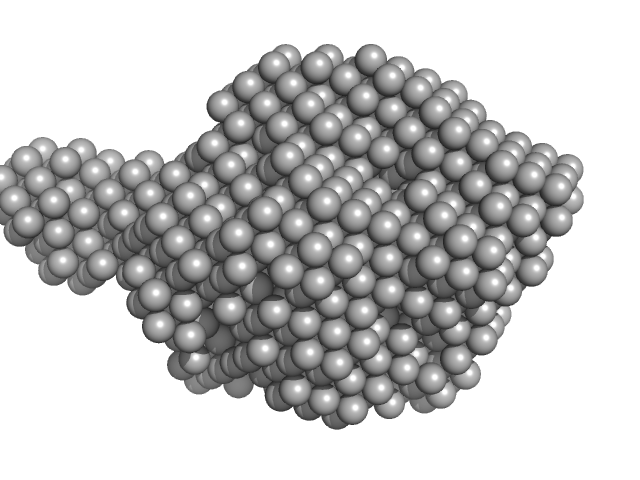| MWexperimental | 35 | kDa |
| MWexpected | 34 | kDa |
| VPorod | 58 | nm3 |
|
log I(s)
1.06×103
1.06×102
1.06×101
1.06×100
|
 s, nm-1
s, nm-1
|
|
|
|

|
|

|
|
Synchrotron SAXS
data from solutions of
HIT family hydrolase protein from Vibrio fischeri. Northeast Structural Genomics Consortium target id VfR176
in
5 mM DTT 100 mM NaCl 10 mM Tris-HCl 0.02 % NaN3, pH 7.5
were collected
on the
BL4-2 beam line
at the Stanford Synchrotron Radiation Lightsource (SSRL) storage ring
(Menlo Park, CA, USA)
using a Rayonix MX225-HE detector
at a sample-detector distance of 1.5 m and
at a wavelength of λ = 0.13 nm
(I(s) vs s, where s = 4πsinθ/λ, and 2θ is the scattering angle).
Solute concentrations ranging between 2.1 and 6.3 mg/ml were measured
at 20°C.
20 successive
1 second frames were collected.
The data were normalized to the intensity of the transmitted beam and radially averaged; the scattering of the solvent-blank was subtracted.
|
|
|||||||||||||||||||||||||||||||||